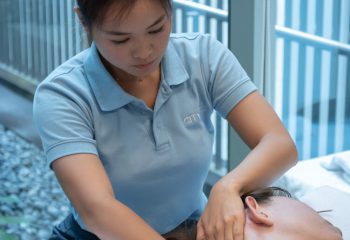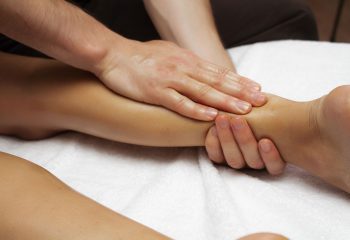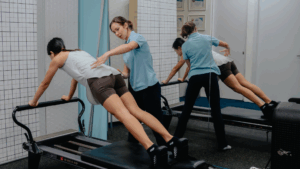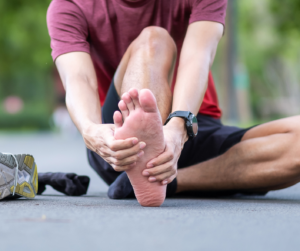At City Osteopathy and Physiotherapy, we aim to provide you with valuable insights into the world of physical therapy for children with special needs and how it can make a significant difference in the lives of children with special needs. We’ll take you on a journey through the basics, challenges, benefits, and practical aspects of physiotherapy for these remarkable youngsters.
What is physical therapy for children with special needs?
Physical therapy, often referred to as physiotherapy, is a holistic approach to enhancing the physical abilities and overall well-being of children with special needs. It involves tailored exercises, stretches, and therapeutic activities that aim to improve mobility, strength, and coordination. But, it’s not just about the physical aspects; it also fosters emotional and psychological development, promoting independence and a better quality of life.
Common challenges faced by children with special needs
Children with special needs encounter a unique set of challenges in their daily lives. These challenges can vary significantly depending on the type and severity of the condition. Some common hurdles they face include:
- Motor skill development: Difficulty in acquiring and refining motor skills, such as crawling, walking, or fine motor skills like gripping objects.
- Balance and coordination issues: Many children with special needs struggle with maintaining balance and coordinating movements.
- Muscle weakness: Weak muscles can hinder their ability to perform even basic activities.
- Pain and discomfort: Certain conditions may cause discomfort or pain, which can impact their daily life and sleep.
- Communication difficulties: Speech and language impairments can affect their ability to express needs and wants.
How can physical therapy help to empower children with special needs?
Early intervention is key when it comes to physical therapy for children with special needs. The benefits are substantial, and they extend beyond just the physical aspects. Early intervention can:
- Foster faster progress: Starting therapy at an early age often yields quicker results in terms of skill development and improved functionality.
- Prevent secondary complications: Addressing issues early can prevent or reduce the risk of secondary complications associated with certain conditions.
- Enhance quality of life: Children who receive early physiotherapy tend to have a higher quality of life and greater independence.
- Empower parents: Parents of children with special needs also benefit, as they receive guidance and support from the physiotherapist in understanding and assisting their child’s development.
What are the common conditions addressed by physical therapists?
Absolutely! We recognise that not all children have the same needs, and our approach reflects this. We address various conditions according to specific age groups, including:
1. Newborns and babies (Aged 0-2)
- Paediatric neurology
- Flat head (Plagiocephaly)
- Colic
- Torticollis
- Knock knees
- Jaw tightness (latching issues)
- Overlapping toes
- Respiratory conditions with increased secretion
2. Toddlers (Aged 2-6)
- Knock knees
- Flat feet
- Scoliosis
- Balance & Coordination issues
- Paediatric neurology (e.g. Cerebral palsy, Hypotonia, Global developmental delays)
- Respiratory conditions with increased secretion
3. Adolescents and children (Aged 6-16)
- Knock knees
- Flat feet
- Scoliosis
- Balance & Coordination issues
- Paediatric neurology (e.g. Cerebral palsy, Hypotonia)
- Respiratory conditions with increased secretion
How does physical therapy address developmental delays?
Developmental delays can be a common concern for parents of children with special needs. Our team at is dedicated to addressing these delays through a range of therapeutic strategies:

Motor skills therapy
Motor skills therapy focuses on improving a baby’s motor abilities, such as balance, coordination, strength, and mobility. Physical therapists use various techniques to stimulate and develop these skills. For example, they may engage the baby in guided exercises and activities that target specific muscle groups and encourage movement patterns.
These exercises may include gentle stretches, range-of-motion exercises, balance training, and strengthening exercises. Motor skills therapy helps babies build the foundation for crawling, sitting, standing, and walking, enabling them to explore their
environment and interact with their surroundings more effectively.
Developmental exercises and techniques
Developmental exercises and techniques are crucial components of physical therapy for babies with developmental delays. These exercises are designed to address specific developmental areas, including cognitive, fine motor, gross motor, and social skills. Physical therapists may use play-based activities, interactive games, and sensory stimulation to engage the baby and promote development. These exercises aim to improve hand-eye coordination, object manipulation, grasping, reaching, and other essential skills. Through repetitive and structured activities, babies develop cognitive abilities, problem-solving skills, and social interactions, fostering their overall growth and development.
Sensory integration techniques
Sensory integration techniques, which help babies process and respond appropriately to sensory stimuli, may be adopted as well. Sensory integration activities may involve exposure to different textures, sounds, and movements to help babies develop appropriate responses to sensory input.
Movement facilitation techniques
Movement facilitation techniques focus on facilitating normal movement patterns and postural control. This approach utilises specific handling techniques and positioning strategies to encourage optimal motor development and improve overall function.
What should I expect during my child’s first physical therapy appointment?
As a parent, it’s natural to have questions about your child’s first physiotherapy appointment. Here’s what you can expect:
- Initial assessment: During the first appointment, our experienced physical therapist will conduct a comprehensive assessment of your child’s physical abilities, medical history, and specific needs.
- Individualised plan: Based on the assessment, we will create a personalised treatment plan that outlines your child’s goals and the strategies to achieve them.
- Hands-on therapy: Our physical therapists will engage your child in fun, age-appropriate activities designed to address their specific challenges while making the experience enjoyable.
- Parent education: We believe in the importance of involving parents in the therapy process. You’ll receive guidance on exercises and activities to continue at home to support your child’s progress.
Unlocking potential: A brighter future with physical therapy
Physical therapy with us is a gateway to enhancing the quality of life for children with special needs. Our dedicated team is here to provide the support, expertise, and personalised care that your child deserves. If you have any further questions or would like to schedule an appointment, please don’t hesitate to contact us. Together, we can help your child thrive and achieve their full potential.
FAQs
Are there home exercises that complement physical therapy for children?
Yes, there are several home exercises that can complement your child’s physiotherapy sessions. These exercises are typically recommended by our physical therapists and are tailored to your child’s specific needs. They play a crucial role in reinforcing the progress made during clinic sessions.
Some common home exercises include stretching routines, strengthening exercises, and activities that focus on balance and coordination. Our team will provide detailed instructions on how to perform these exercises safely and effectively at home.
How can parents support the progress of children receiving physical therapy?
Support from parents and caregivers is invaluable in the journey of children receiving physiotherapy. Here are some ways you can actively contribute to your child’s progress:
- Consistency: Ensure that your child attends their therapy sessions regularly, as consistency is key to progress.
- Communication: Maintain open communication with the physical therapist. Share any concerns or observations about your child’s development to adjust the treatment plan accordingly.
- Home exercise routine: Be diligent about carrying out the prescribed home exercises. Consistent practice will reinforce the benefits of therapy.
- Create a supportive environment: Foster a supportive and encouraging environment at home. Celebrate your child’s achievements and provide motivation for their ongoing efforts.
- Advocate for your child: As a parent, you play a vital role in advocating for your child’s needs, whether it’s within the healthcare system, at school, or in the community. Be their voice and champion their rights and access to services.
How can I prepare my child for a physical therapy session?
Preparing your child for their first physical therapy session can help make the experience more comfortable and enjoyable. Here are some tips to consider:
- Explain the process: Talk to your child about the upcoming appointment, explaining that it’s a fun and supportive experience to help them get stronger and more independent.
- Choose comfortable clothing: Dress your child in comfortable, loose-fitting clothing that allows for easy movement during the session.
- Bring their favourite toy: Bringing along a favourite toy or comfort item can provide reassurance and make the experience more familiar.
- Stay positive: Maintain a positive attitude and be supportive throughout the session, reassuring your child that the physiotherapist is there to help.
- Be patient: Every child’s progress is unique. Be patient and celebrate even the smallest achievements during the session.










